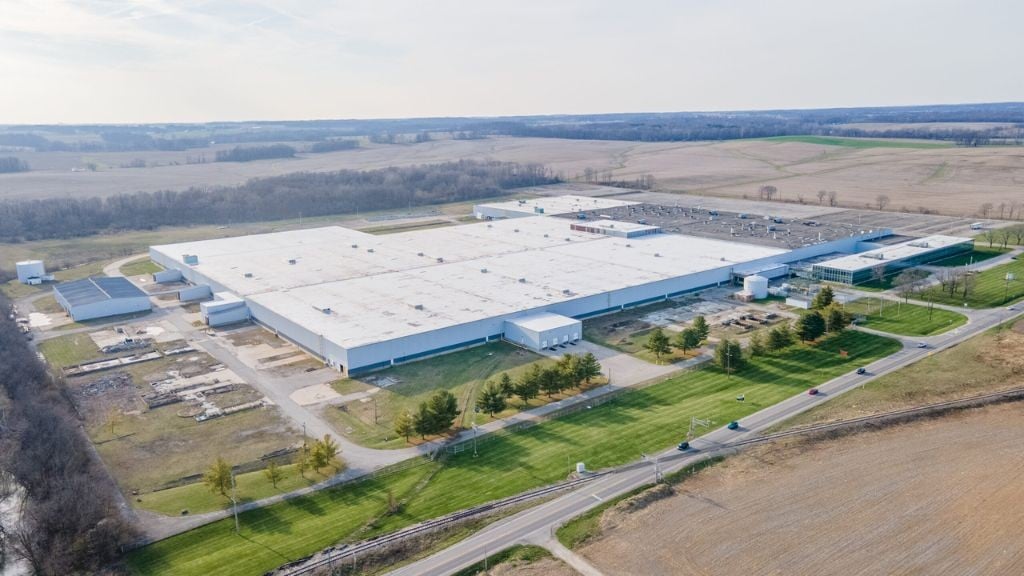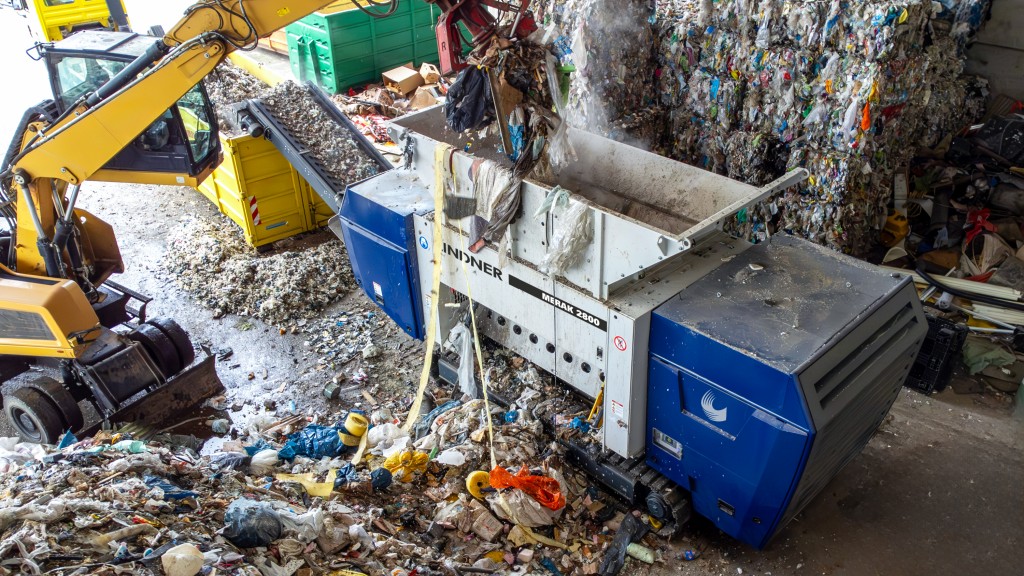Inside one of the world’s largest plastic film recycling facilities
The facility will recycle 145,000 bales of plastic film each year into high-quality, food-grade polyethylene resin

NOVA Chemicals has opened SYNDIGO1, its first mechanical recycling plant, in Connersville, Indiana. The facility is one of the world's largest dedicated to polyethylene film recycling. Once fully operational, SYNDIGO1 is expected to repurpose 145,000 bales of plastic film annually and produce more than 110 million pounds of recycled polyethylene by 2026.
High-capacity mechanical recycling at SYNDIGO1
Spanning 450,000 square feet, SYNDIGO1 is equipped to process a large volume of end-of-life polyethylene film. The recycled material, marketed under NOVA Chemicals' SYNDIGO brand, includes recycled linear low-density polyethylene (rLLDPE) suitable for both food and non-food packaging.
The plant has also received certification from the U.S. Food and Drug Administration and GreenBlue, ensuring the recycled resin meets stringent safety and sustainability standards.
Recycled PE for a wide range of packaging applications
SYNDIGO recycled rLLDPE is processed into high-quality pellets used in applications ranging from trash can liners to food-grade packaging. One of the resin grades has FDA compliance for all food types under Conditions of Use B through H, making it suitable for pantry, refrigerator, and freezer packaging.
Reliable feedstock from retail and distribution partners
To ensure a consistent and clean input stream, SYNDIGO1 partners with major retailers and distribution centres across the country to source back-of-store polyethylene film. The facility processes an average of 400 bales of film per day, or about 14,000 bales per month. Over the course of a year, the volume diverted from landfills is equivalent to filling four professional football fields to the top of the goalposts.
Boosting local jobs and advancing circular economy goals
The facility will support approximately 125 local jobs and play a key role in reducing landfill-bound plastic waste. Plastic film collected from residents, businesses, and commercial partners will be processed into 100 percent post-consumer recycled polyethylene, helping meet growing demand for sustainable packaging materials.
Demand for recycled plastic set to triple by 2030
According to a study on companies facing external pressure to improve sustainability from McKinsey & Company, global demand for post-consumer recycled plastic is expected to triple by 2030, reaching approximately 90 million tonnes. This surge reflects increasing pressure on brands to reduce their environmental footprint and meet recycled content targets.
A recent survey by NOVA Chemicals also found that 75 percent of consumers believe companies should increase the use of packaging made from recycled materials, a sign that sustainability is now a key driver in purchasing decisions.
Improved collection systems needed for plastic film recycling
To meet this rising demand and ensure plastic film is successfully recycled into new products, the right collection infrastructure is essential. Flexible plastics like bags and film packaging are lightweight and easily contaminated, making dedicated collection necessary for quality output.
For individuals, convenient access to recycling options like curbside bins and retail drop-off locations is vital to keep plastic film in the recycling stream. On the commercial side, businesses and retailers can contribute by sending large volumes of clean film directly to recyclers through established take-back partnerships.
A coordinated effort across the value chain is necessary to build a circular system where recycled film is a reliable, high-quality feedstock for new packaging and other plastic products.
What is plastic film?
Plastic film is a thin, flexible layer of plastic commonly used to protect products from contamination and damage. It's lightweight, durable, and ideal for packaging applications such as grocery bags, bread bags, bubble wrap, shrink wrap, pallet wrap, and shipping envelopes. Much of this material is made from polyethylene, the most widely used plastic type in the world.
Why is plastic film difficult to recycle?
Plastic film is not accepted in many curbside recycling programs because it can clog sorting equipment at material recovery facilities. Its lightweight, flexible nature causes it to wrap around machinery, leading to delays, contamination, and expensive downtime.
Instead, consumers are often required to bring film packaging to designated store drop-off bins or community collection programs. This extra step can lead to low participation rates, limiting the volume of clean film collected for recycling.
Systemic challenges in film recycling
Beyond consumer behaviour, broader infrastructure challenges make plastic film recycling even harder. Many regions lack the sorting technology needed to properly separate film from other recyclables. Plus, poorly designed packaging made from multiple layers of different materials is difficult or impossible to recycle.
To recycle film packaging at scale, facilities need advanced sorting systems, decontamination processes, and specialized equipment capable of handling flexible plastics without tangling.
Mechanical recycling for plastic film packaging
Mechanical recycling plays a critical role in managing plastic film waste by processing materials without altering their chemical structure. This method is especially effective for recycling plastic film packaging, including items like produce bags, shrink wrap, and grocery bags. Through mechanical recycling, these soft plastics can be collected, cleaned, shredded, melted, and reformed into pellets used to manufacture new film products or durable goods.
Unlike chemical recycling, which breaks plastics down into their molecular components, mechanical recycling maintains the original polymer, making it a more energy-efficient and cost-effective solution for many types of post-consumer plastic films. When collection and sorting systems are properly implemented, mechanical recycling helps reduce landfill waste, conserve resources, and support circular economy goals in the plastics and packaging sectors.
Growing demand for recycled content in packaging and pressure from extended producer responsibility regulations are also driving investment in technologies that improve the mechanical recycling of flexible plastics.
Grand opening ceremony for SYNDIGO1
NOVA Chemicals commemorated the achievement by hosting a grand opening event with nearly 100 attendees, which included representatives from NOVA Chemicals' Board of Directors, Novolex executives and employees, customers, and OEMs. The ceremony marks the completion of 22 months of planning, construction, and scale-up.
"Our SYNDIGO1 facility is a tangible example of what motivation, collaboration, and market demand can do together," said NOVA Chemicals CEO Roger Kearns. "At NOVA, we have decades of experience in developing products that make our lives better. As of today, we're not only a petrochemical producer but also a recycler of polyethylene. We're diverting plastic waste from landfills and turning it into new, quality products that help keep our food fresh or safely transport goods and materials to store shelves."
Company info
400 Frankfort Road
Monaca, PA
US, 15061
Website:
novachem.com
Phone number:
1-877-877-0062



